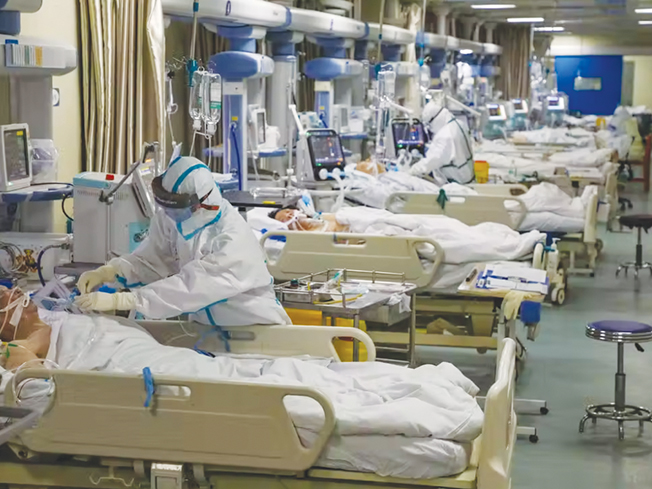By Charalampos Stylianou
Public hospitals are facing mounting pressure due to a surge in seasonal respiratory infections, with influenza and Covid-19 spreading rapidly across the community.
According to the spokesperson for the state health services Okypy, Charalambos Charilaou, the number of patients visiting emergency departments has doubled since mid-December, making it increasingly difficult for staff to manage the influx.
“Over 200 patients are being treated daily at A&E units, primarily with flu, Covid-19, and [respiratory syncytial virus] RSV symptoms,” Charilaou said, highlighting the significant strain on healthcare professionals.
One of the main factors exacerbating the situation is that many patients with mild symptoms, who do not require urgent care, are choosing to go to A&E rather than visiting their doctors. This has resulted in increased congestion and delays in treating more serious cases.
“Many citizens are creating congestion at A&E by showing up with mild symptoms, such as the flu, instead of consulting their doctors. This leads to delays because professionals must prioritise genuine emergencies,” explained Charilaou.
Meanwhile, the intensive care unit at Nicosia general hospital is treating four intubated patients with influenza A, aged 43, 66, 67 and 86. Additionally, 14 patients with Covid-19 are currently in isolation.
“The spike in cases is considerable, and caution is advised,” Charilaou said, noting that RSV primarily affects children and the elderly, while cases of flu and Covid-19 remain on the rise.
Despite the ongoing surge in cases, Charilaou reassured the public that the situation remains manageable, emphasising that there is no cause for panic.
“Staff are doing their utmost to provide the best possible care. We urge patients to cooperate with hospital staff and consult their doctors for non-urgent cases,” he stated.
Health experts warn that seasonal infections are likely to persist throughout January and February. They also stress the importance of maintaining good hygiene practices, as these viruses are mainly transmitted through respiratory droplets when an infected person speaks, coughs, or sneezes.






Click here to change your cookie preferences